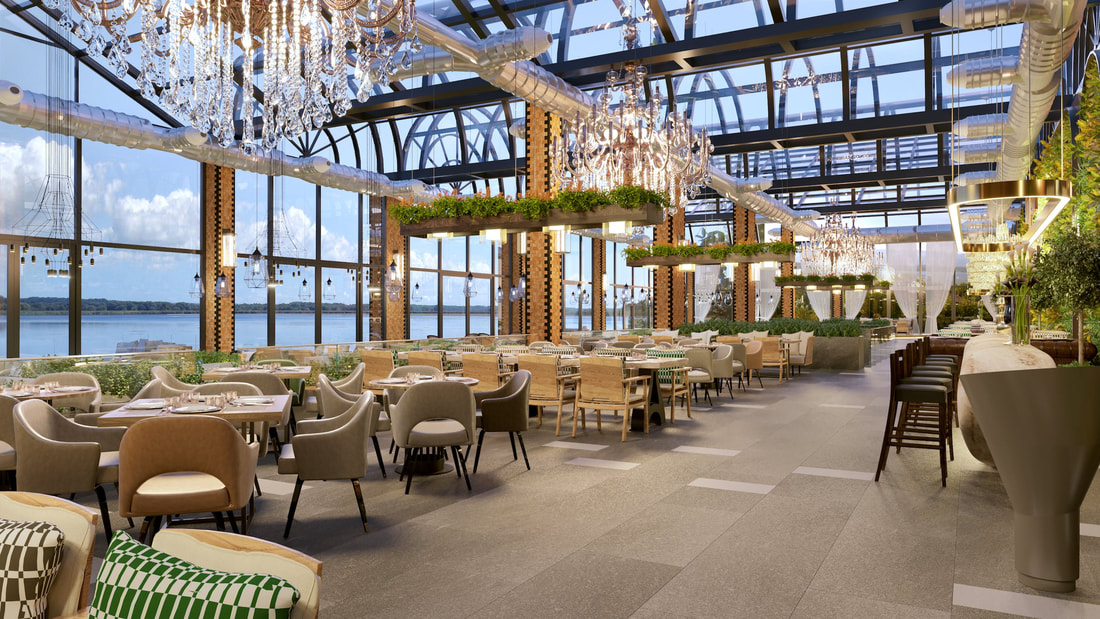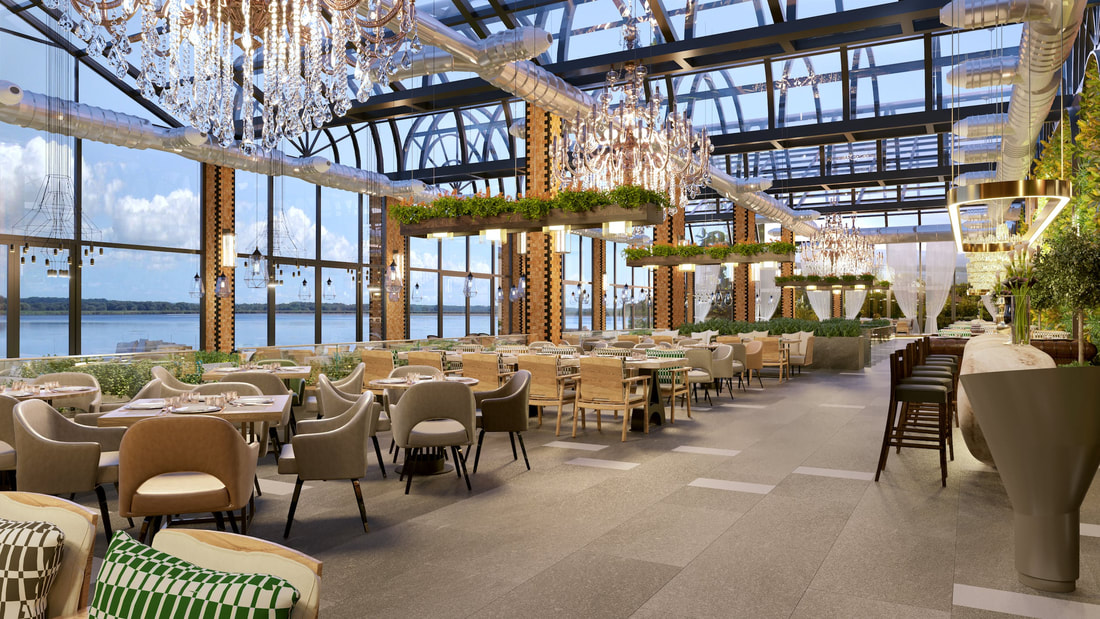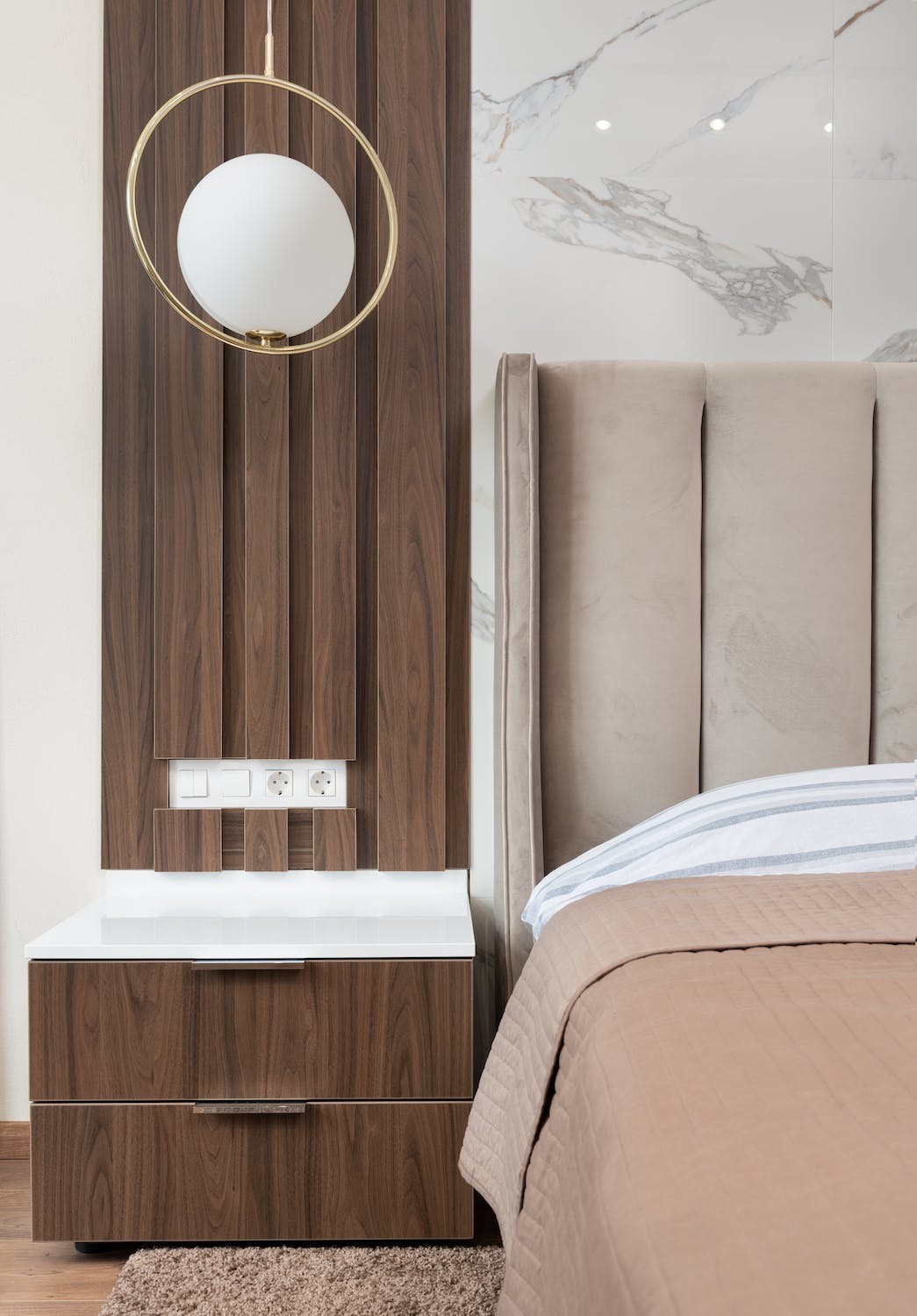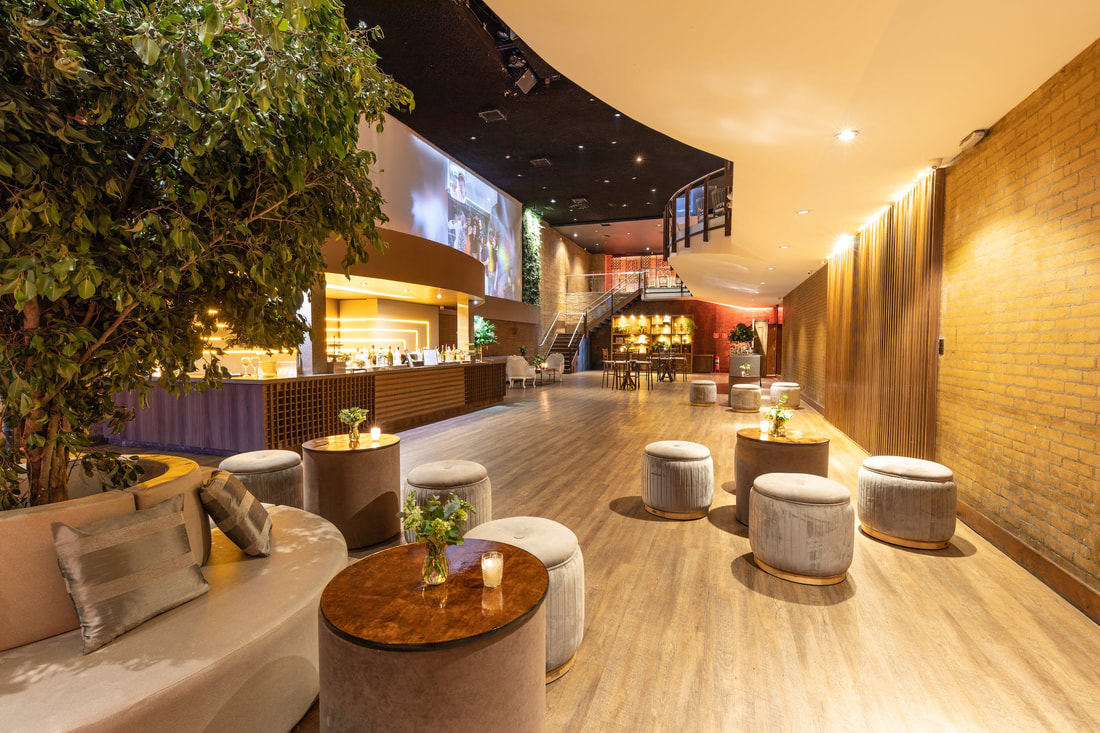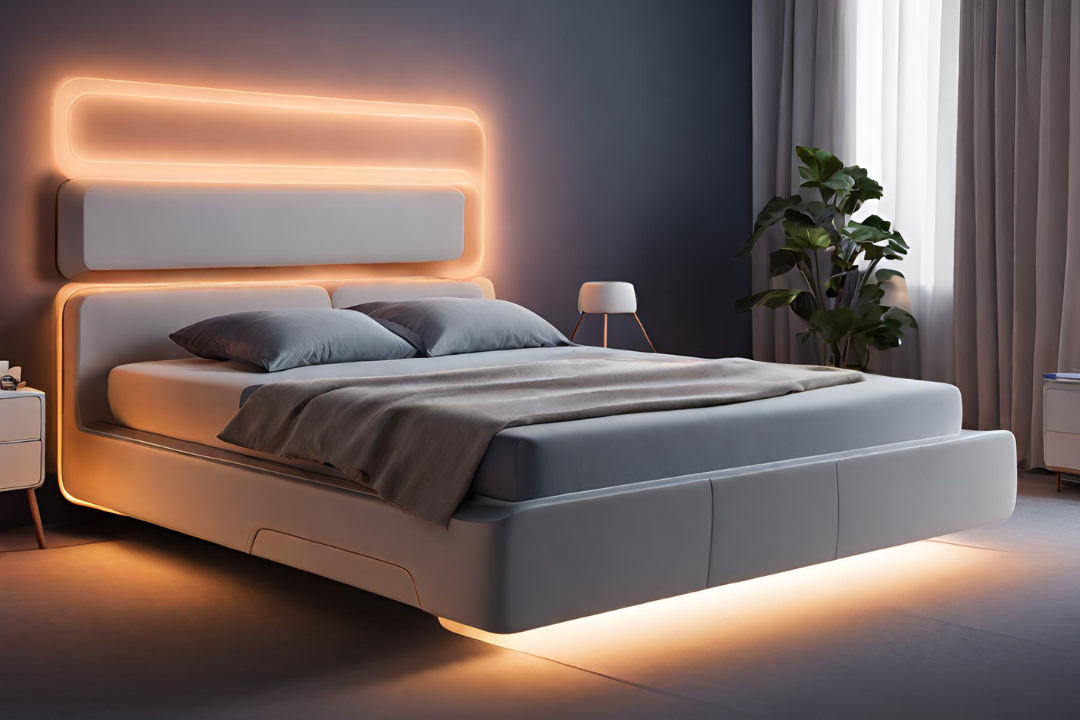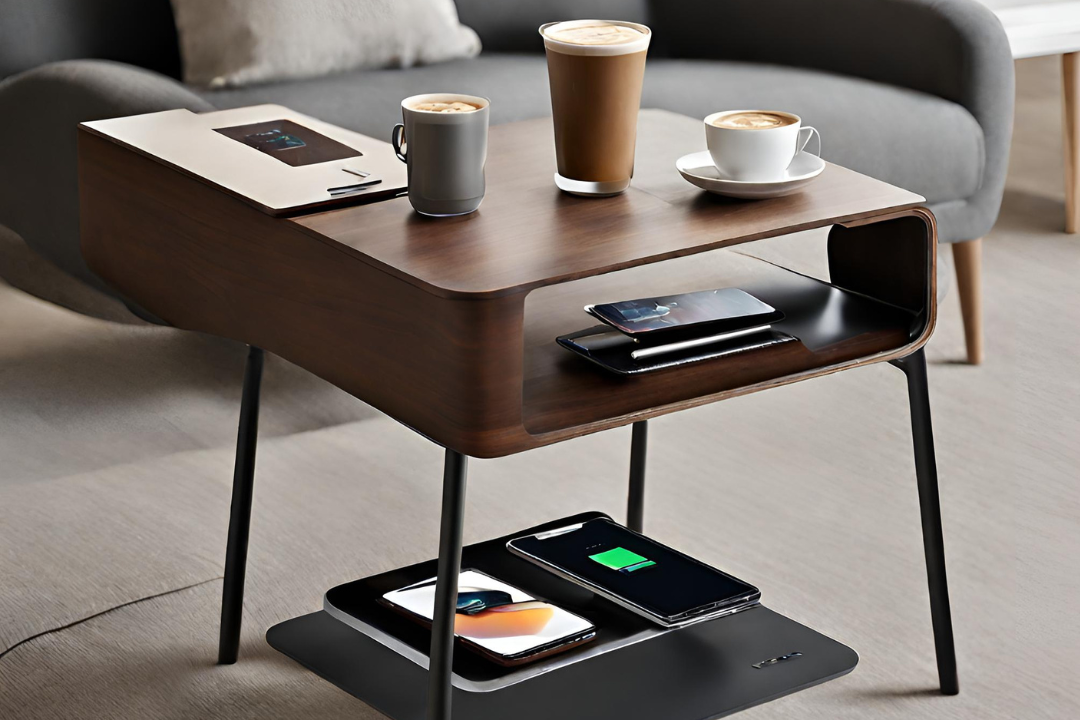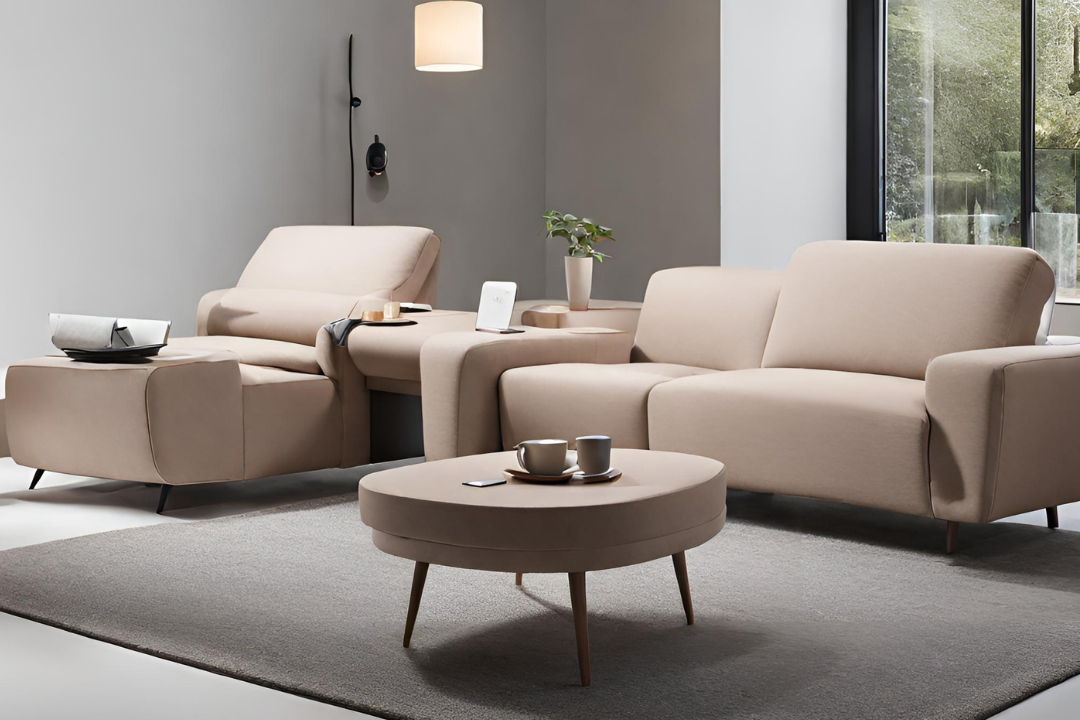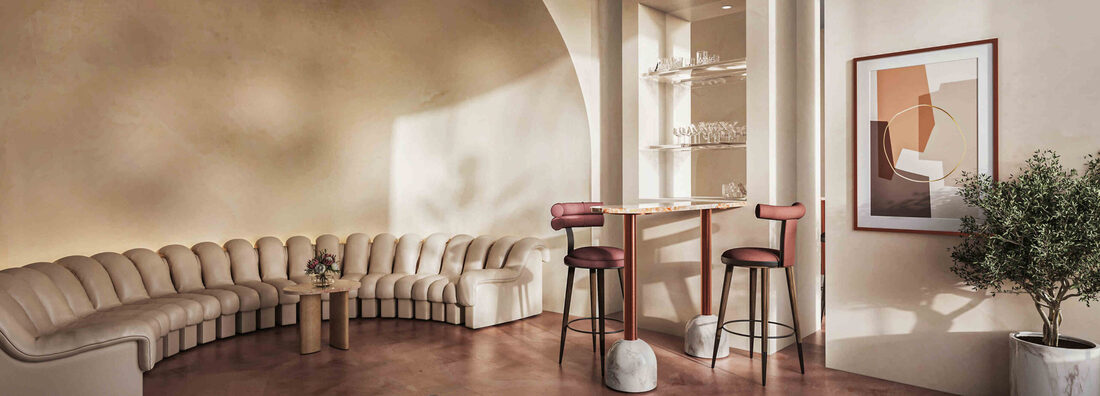The Future of Technologically-Enhanced Modern Hospitality Furniture
Welcome to the future of hospitality design, where innovation meets comfort and style. The journey of hospitality furniture has transcended traditional boundaries, evolving from mere functional pieces to statements of elegance and convenience. In this dynamic landscape, a new trend is rapidly taking centre stage – the infusion of cutting-edge technology into the very fabric of our favourite furnishings.
Welcome to the future of hospitality design, where innovation meets comfort and style. The journey of hospitality furniture has transcended traditional boundaries, evolving from mere functional pieces to statements of elegance and convenience. In this dynamic landscape, a new trend is rapidly taking centre stage – the infusion of cutting-edge technology into the very fabric of our favourite furnishings.
The Future of Technologically-Enhanced Modern Hospitality Furniture
Welcome to the future of hospitality design, where innovation meets comfort and style. The journey of hospitality furniture has transcended traditional boundaries, evolving from mere functional pieces to statements of elegance and convenience. In this dynamic landscape, a new trend is rapidly taking centre stage – the infusion of cutting-edge technology into the very fabric of our favourite furnishings.
Welcome to the future of hospitality design, where innovation meets comfort and style. The journey of hospitality furniture has transcended traditional boundaries, evolving from mere functional pieces to statements of elegance and convenience. In this dynamic landscape, a new trend is rapidly taking centre stage – the infusion of cutting-edge technology into the very fabric of our favourite furnishings.
Enter the Era of Technologically-Enhanced Elegance
Picture this: a hotel room where your furniture not only complements the ambiance but also responds intelligently to your needs. This is the exciting reality ushered in by the rise of smart and stylish hospitality furniture.
We’re witnessing a paradigm shift where technology seamlessly integrates with design, creating an immersive and unforgettable experience for guests. Wireless charging embedded in coffee tables, smart lighting systems adapting to moods, and multifunctional surfaces that anticipate your every requirement – the possibilities are as exciting as they are limitless.
The stage is set to uncover how smart and stylish furniture is not merely a trend but a transformative force shaping the very essence of hospitality experiences across America. Join us as we unravel the intricacies of this phenomenon, where form meets function, and innovation meets indulgence.
Picture this: a hotel room where your furniture not only complements the ambiance but also responds intelligently to your needs. This is the exciting reality ushered in by the rise of smart and stylish hospitality furniture.
We’re witnessing a paradigm shift where technology seamlessly integrates with design, creating an immersive and unforgettable experience for guests. Wireless charging embedded in coffee tables, smart lighting systems adapting to moods, and multifunctional surfaces that anticipate your every requirement – the possibilities are as exciting as they are limitless.
The stage is set to uncover how smart and stylish furniture is not merely a trend but a transformative force shaping the very essence of hospitality experiences across America. Join us as we unravel the intricacies of this phenomenon, where form meets function, and innovation meets indulgence.
How Tech Is Transforming the Hospitality Sector
Hospitality is no longer confined to the warmth of a welcome smile; it now extends into the very fabric of the physical space. Technology is orchestrating a symphony of change, turning hotel lobbies into interactive showcases of innovation.
Automated check-ins, personalized room controls, and intelligent concierge services are just a glimpse into the transformative power of technology in the hospitality sector. As we navigate through this digital metamorphosis, we witness the seamless fusion of technology and hospitality, creating a harmonious dance between the virtual and the tangible.
Hospitality is no longer confined to the warmth of a welcome smile; it now extends into the very fabric of the physical space. Technology is orchestrating a symphony of change, turning hotel lobbies into interactive showcases of innovation.
Automated check-ins, personalized room controls, and intelligent concierge services are just a glimpse into the transformative power of technology in the hospitality sector. As we navigate through this digital metamorphosis, we witness the seamless fusion of technology and hospitality, creating a harmonious dance between the virtual and the tangible.
The Integration
At the heart of this evolution lies the integration of smart features into every nook and cranny of hospitality furniture. No longer confined to mere functionality, these pieces now possess an intelligence of their own. Imagine a world where lighting adapts to the mood, where furniture not only serves its purpose but anticipates your needs.
In the examination of modernization conducted by Boston University, it was asserted that the hospitality industry stands to gain numerous advantages from technology integration. For instance, the utilization of artificial intelligence (AI) chatbots has the potential to enhance guest experiences, mobile ordering can optimize operational efficiency, and the incorporation of robots can reduce staff workload while concurrently cutting down on costs.
From smart lighting systems that mirror natural conditions to furniture adorned with wireless charging capabilities, the marriage of technology and design is nothing short of revolutionary. It’s a narrative where each piece tells a story of a future where form and function coalesce seamlessly.
In this digital age, hospitality furniture is not just an ensemble of objects; it’s a canvas painted with the strokes of innovation, weaving a tale of comfort, style, and technological marvels.
Types of Smart Hospitality Furniture Pieces
The integration of smart technology into hospitality furniture has given rise to a new era of comfort and convenience. Here are some types of smart hospitality furniture pieces that are transforming the guest experience:
At the heart of this evolution lies the integration of smart features into every nook and cranny of hospitality furniture. No longer confined to mere functionality, these pieces now possess an intelligence of their own. Imagine a world where lighting adapts to the mood, where furniture not only serves its purpose but anticipates your needs.
In the examination of modernization conducted by Boston University, it was asserted that the hospitality industry stands to gain numerous advantages from technology integration. For instance, the utilization of artificial intelligence (AI) chatbots has the potential to enhance guest experiences, mobile ordering can optimize operational efficiency, and the incorporation of robots can reduce staff workload while concurrently cutting down on costs.
From smart lighting systems that mirror natural conditions to furniture adorned with wireless charging capabilities, the marriage of technology and design is nothing short of revolutionary. It’s a narrative where each piece tells a story of a future where form and function coalesce seamlessly.
In this digital age, hospitality furniture is not just an ensemble of objects; it’s a canvas painted with the strokes of innovation, weaving a tale of comfort, style, and technological marvels.
Types of Smart Hospitality Furniture Pieces
The integration of smart technology into hospitality furniture has given rise to a new era of comfort and convenience. Here are some types of smart hospitality furniture pieces that are transforming the guest experience:
1. Smart Beds:
- Features adjustable firmness, integrated sensors for sleep tracking, and climate control to enhance the sleep environment.
- Some models offer smart lighting underneath the bed, providing ambient illumination.
2. Connected Desks:
- Equipped with built-in wireless charging pads for smartphones and tablets.
- Often include USB ports and power outlets for easy access to charging.
- Smart mirrors with touchscreens that display relevant information such as weather, news, and local attractions.
- Some mirrors have built-in cameras for virtual try-ons, catering to the needs of fashion-forward guests.
4. Wireless Charging Tables:
- Coffee tables and bedside tables with integrated wireless charging pads. This could also offer convenience to guests as wireless charging is more versatile than having different cords for charging between android and IOS devices.
- Provide a convenient and clutter-free solution for guests to charge their devices.
5. Intelligent Lighting Systems:
- Smart lighting fixtures that adjust based on natural light conditions or guest preferences.
- Some systems can be controlled through mobile apps, allowing guests to customize lighting to create the desired ambiance.
6. Smart Sofas and Seating:
- Sofas equipped with built-in USB ports for device charging.
- Some models feature integrated touch controls for adjusting seating positions or activating massage functions.
7. Digital Art Frames:
- Artwork that doubles as digital displays, allowing guests to enjoy a rotating gallery of images.
- Can be customized to match the aesthetic of the room or display information such as event schedules.
- Furniture pieces with integrated voice-activated assistants like Amazon Alexa or Google Assistant.
- Enables guests to control room settings, request information, or even place orders through voice commands.
- Wardrobes with integrated LED lighting for easy visibility.
- Some models feature RFID technology for inventory management and to enhance the hotel’s sustainability efforts.
- Tables with built-in touchscreens for ordering room service, browsing local attractions, or controlling room settings.
- Offer a centralized hub for guest interactions and services.
These smart hospitality furniture pieces not only elevate the guest experience but also contribute to increased efficiency in hotel operations. As technology continues to advance, the possibilities for innovative and functional designs are limitless, shaping the future of hospitality furnishings.
The Benefits Of Integrating Smart Hospitality Furniture To Your Business
Improved Guest Satisfaction and Experience
One of the primary benefits of incorporating smart hospitality experiences is the enhancement of guest satisfaction. Smart technologies, such as personalized room controls, smart concierge services, and interactive in-room features, contribute to a more enjoyable and seamless guest experience. Guests appreciate the convenience and customization that smart systems provide, leading to higher satisfaction levels and positive reviews.
Operational Efficiency through Smart Management Systems:
Smart hospitality solutions streamline various operational aspects for businesses. Smart management systems enable efficient monitoring and control of energy usage, room occupancy, and maintenance needs. Automated processes, such as check-ins and check-outs, reduce manual workload for staff, allowing them to focus on delivering personalized services. This operational efficiency translates into cost savings and a more agile response to changing demands.
Competitive Advantage in the Industry
Implementing smart hospitality technologies provides businesses with a competitive edge in the industry. Guests increasingly seek technologically advanced and convenient experiences, and hotels that embrace smart solutions differentiate themselves from competitors. This innovation not only attracts tech-savvy guests but also positions the business as forward-thinking and committed to providing a modern and cutting-edge stay. It can be a key factor in attracting and retaining customers in a highly competitive market.
In summary, the adoption of smart hospitality experiences offers a trifecta of benefits for businesses: heightened guest satisfaction, streamlined operations, and a distinct competitive advantage. These advantages collectively contribute to the overall success and sustainability of hospitality establishments in a rapidly evolving industry.
The Disadvantages Of Integrating Smart Hospitality Furniture To Your Business
While smart hospitality furniture brings numerous benefits, there are also potential disadvantages and challenges associated with their implementation. Here are some considerations:
High Initial Costs:
Disadvantage:
The integration of smart technology into furniture often comes with significant upfront costs. This can be a barrier for smaller hospitality businesses or those with limited budgets.
Source:
According to a report by Deloitte, the initial costs associated with implementing smart technologies in the hospitality sector, including smart furniture, can be substantial. (Deloitte – Hospitality 4.0: The Future of Hospitality)
Maintenance Challenges:
Disadvantage:
Smart furniture involves complex electronic systems that may require regular maintenance. And for maintaining outdoor furniture pieces, it will be a whole different story. Technical issues, software updates, and hardware malfunctions can pose challenges for ongoing upkeep.
Source:
Industry insights from Hospitality Technology or Hotel Management provides information on the maintenance challenges associated with smart hospitality furniture. It says that the maintenance challenges includes unavailability of manufacturer schedule for maintenance of pieces.
Security Risks:
Disadvantage:
The increased connectivity of smart devices in furniture can pose security risks, including the potential for hacking or unauthorized access. Ensuring robust cybersecurity measures is crucial.
Source:
Cybersecurity concerns related to smart technology in the hospitality industry have been discussed in reports by organizations like NIST.
Crafting Tomorrow’s Hospitality: Bestar Hospitality at the Nexus of Innovation and Design Of Modern Hospitality Furniture
The Benefits Of Integrating Smart Hospitality Furniture To Your Business
Improved Guest Satisfaction and Experience
One of the primary benefits of incorporating smart hospitality experiences is the enhancement of guest satisfaction. Smart technologies, such as personalized room controls, smart concierge services, and interactive in-room features, contribute to a more enjoyable and seamless guest experience. Guests appreciate the convenience and customization that smart systems provide, leading to higher satisfaction levels and positive reviews.
Operational Efficiency through Smart Management Systems:
Smart hospitality solutions streamline various operational aspects for businesses. Smart management systems enable efficient monitoring and control of energy usage, room occupancy, and maintenance needs. Automated processes, such as check-ins and check-outs, reduce manual workload for staff, allowing them to focus on delivering personalized services. This operational efficiency translates into cost savings and a more agile response to changing demands.
Competitive Advantage in the Industry
Implementing smart hospitality technologies provides businesses with a competitive edge in the industry. Guests increasingly seek technologically advanced and convenient experiences, and hotels that embrace smart solutions differentiate themselves from competitors. This innovation not only attracts tech-savvy guests but also positions the business as forward-thinking and committed to providing a modern and cutting-edge stay. It can be a key factor in attracting and retaining customers in a highly competitive market.
In summary, the adoption of smart hospitality experiences offers a trifecta of benefits for businesses: heightened guest satisfaction, streamlined operations, and a distinct competitive advantage. These advantages collectively contribute to the overall success and sustainability of hospitality establishments in a rapidly evolving industry.
The Disadvantages Of Integrating Smart Hospitality Furniture To Your Business
While smart hospitality furniture brings numerous benefits, there are also potential disadvantages and challenges associated with their implementation. Here are some considerations:
High Initial Costs:
Disadvantage:
The integration of smart technology into furniture often comes with significant upfront costs. This can be a barrier for smaller hospitality businesses or those with limited budgets.
Source:
According to a report by Deloitte, the initial costs associated with implementing smart technologies in the hospitality sector, including smart furniture, can be substantial. (Deloitte – Hospitality 4.0: The Future of Hospitality)
Maintenance Challenges:
Disadvantage:
Smart furniture involves complex electronic systems that may require regular maintenance. And for maintaining outdoor furniture pieces, it will be a whole different story. Technical issues, software updates, and hardware malfunctions can pose challenges for ongoing upkeep.
Source:
Industry insights from Hospitality Technology or Hotel Management provides information on the maintenance challenges associated with smart hospitality furniture. It says that the maintenance challenges includes unavailability of manufacturer schedule for maintenance of pieces.
Security Risks:
Disadvantage:
The increased connectivity of smart devices in furniture can pose security risks, including the potential for hacking or unauthorized access. Ensuring robust cybersecurity measures is crucial.
Source:
Cybersecurity concerns related to smart technology in the hospitality industry have been discussed in reports by organizations like NIST.
Crafting Tomorrow’s Hospitality: Bestar Hospitality at the Nexus of Innovation and Design Of Modern Hospitality Furniture
Embracing the forefront of innovation, Bestar Hospitality envisions a future where smart furniture seamlessly intertwines with the essence of modern hospitality spaces. With a commitment to staying at the cutting edge of design and technology, Bestar Hospitality is poised to redefine the guest experience.
The approach is anchored in a meticulous blend of market insights and collaborative efforts with tech pioneers. By understanding the evolving landscape of smart hospitality trends, Bestar Hospitality aims to craft furniture pieces that transcend mere functionality, becoming integral elements in the narrative of a contemporary stay.
The ethos revolves around user-centric design, ensuring that each piece not only complements the aesthetic of modern spaces but also enhances the overall guest experience. With a focus on multi-functionality, energy efficiency, and sustainability, Bestar Hospitality is dedicated to creating hospitality furniture that is both technologically advanced and environmentally conscious.
The commitment extends to scalability and seamless integration, allowing businesses to effortlessly incorporate smart furniture into their existing infrastructures.
As Bestar Hospitality envisions the future of hospitality design, the journey includes continuous innovation, customer education, and a dedication to industry standards, ensuring that every smart furniture piece is a testament to excellence in both form and function.
The approach is anchored in a meticulous blend of market insights and collaborative efforts with tech pioneers. By understanding the evolving landscape of smart hospitality trends, Bestar Hospitality aims to craft furniture pieces that transcend mere functionality, becoming integral elements in the narrative of a contemporary stay.
The ethos revolves around user-centric design, ensuring that each piece not only complements the aesthetic of modern spaces but also enhances the overall guest experience. With a focus on multi-functionality, energy efficiency, and sustainability, Bestar Hospitality is dedicated to creating hospitality furniture that is both technologically advanced and environmentally conscious.
The commitment extends to scalability and seamless integration, allowing businesses to effortlessly incorporate smart furniture into their existing infrastructures.
As Bestar Hospitality envisions the future of hospitality design, the journey includes continuous innovation, customer education, and a dedication to industry standards, ensuring that every smart furniture piece is a testament to excellence in both form and function.
